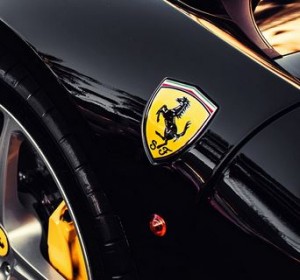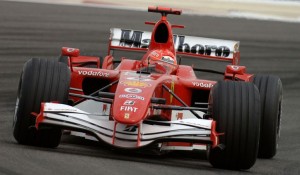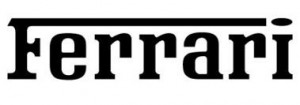Source: autonews.com
There’s no charge for this.
This report is not a personal recommendation and does not take into account your personal circumstances or appetite for risk.
While share sales by such well-known names are few and far between, the success of English Premiership and globally renowned football club Manchester United (MANU) is a prime example, having floated on the New York Stock Exchange in August 2012, giving fans round the world the opportunity to own a piece of their footballing passion.
Impressive 32% share price gains since, and many an occasion to profit from swing trades along the way (as well as a couple of trophies) has also made MANU an exciting investment. Ferrari’s IPO could well offer similar investment and trading opportunities, and success even if share price ‘drivers’ are markedly different.
Manchester United, like Ferrari, is an example of something more akin to a luxury brand than a company, being an object of desire for both the young and old. This almost guarantees more than normal demand for any new shares with interest from the usual pension and hedge fund investors being inflated by Joe Public wanting a slice of the action too.
The iconic Italian car maker is being let off the leash by parent company and US-listed Fiat Chrysler Automobiles (FCA) early in 2016 in order to raise $100m to increase investment funds and reduce net debt at the Italo-American car giant as well as pave the way for M&A which would otherwise prove tricky with Ferrari still in the fold.
You’ll be glad to know that you’re in with a chance of owning a bit of a legend, even if only a 10% stake is being released to the markets with 80% destined for existing FCA shareholders and 10% for Piero Ferrari, son of founder Enzo.
So while you might not be able to get your hands on a significant shareholding in Ferrari it’s still likely easier than saving up for that F40 you might have had your eye on, so why not aim for a piece of the company instead? The shares may even deliver you the returns you need to bag the real thing sooner than your other investments will! And without any of those expensive MOT/servicing costs.
As mentioned earlier, Ferrari is somewhat less of a car maker and more of a luxury goods brand since its cars are really just that – with limited production and limited practicality (Golf clubs? Baby seat?). The focus is on exclusivity with production limited to 7,000 per year, which is in stark contrast to German peer Porsche (POR3) which has branched out from pure sports car to SUV and now churns out over 160,000 models per annum.

And knowing that brand exclusivity pays in terms of product, FCA and the Ferrari family are evidently keen to maintain this trend for the new shares, making available only a small portion to the financial markets which allows them to keep overall control of the company.
That die hard Ferrari aficionados are likely to flock to this IPO en masse will be of great interest to players looking for short-term capital returns who may come to the market looking to leverage the extreme desirability of Ferrari shares. Like the car itself, shares will be rare. And like the car itself, shares will be desirable.
It has to be said that Ferrari has never wanted its cars to be anything else. The Ferrari brand is more akin to fine art than cars. The company wants people to want Ferraris, possibly even more than actually owning them. To own a Ferrari is to massage the ego, not drive to the shops/school/work. To own Ferrari shares though, that would be akin to owning at least a little bit of the artwork, if not simply being an entertaining yarn for the dinner table.
So we now have three groups of investors interested in the Ferrari IPO: Petrol heads, Opportunistic investors and, well, people who want something to say at dinner parties.
This is sure to see Ferrari shares attract a premium valuation versus Car sector peers when they debut in New York, are surely likely more than Porsche. To back up our exclusivity argument, a glance at Autotrader.co.uk shows 441 Ferraris for sale in the UK versus a whopping 3,371 Porsches. In terms of price, the cheapest Ferrari is a 1986 Mondial for £35K while a 1985 Porsche 928 could be on your driveway for less than a grand (£990). Note that of the ten highest ever grossing cars at auction, nine have been Ferraris.
Ferrari’s preliminary IPO document field with the SEC in July contains no details about valuation or share price yet, with it still being very early days. Furthermore, when numbers are made available they tend to chop and change in the run up to the big day. Nonetheless, there is talk of Ferrari being valued with a market cap in excess of €10bn which would imply more than half the current $20bn value of Fiat Chrysler Automobiles today. Ferrari’s balance sheet shows €5bn of assets and we note revenues and profits growing since 2012. A good base to work from it would appear.
As a result, there’ll be little that’s rusty and beaten up about Ferrari shares but it will be difficult to get a handle on what the drivers for the share price could be - will a few Ferrari aficionados drive the price higher as they battle to hold the biggest tranche of the tiny 10% free float made available? Will a meagre increase in annual production cap from the current 7,000 boost the price through the prospect of higher earnings, attracting those value investors into the fold? Or could it endanger the brand’s exclusivity and thus harm the shares?

Let’s face it, while nothing is guaranteed, the small free float available in Ferrari shares and likelihood that the shares will not need to be offered at a significant discount on account of high demand means they are unlikely to experience a dramatic sell-off on day one, a la Facebook or LinkedIn. Fans looking to own a few shares long term for the trivial reasons discussed rather than financial returns are likely to see them hold up well, while short-selling may be difficult with little available to be borrowed. Anyway, you’re not in it for the financial returns, are you? (Shout out to the Fans!)
The Ferrari IPO has the potential to be a lot of fun. For starters, you’ll own a piece of an iconic brand, and that should be enough to get anyone excited (nice to be able to mention to your friends in the pub). But furthermore the potential for some interesting, unprecedented share price drivers is also exciting (heads up, Opportunists). F1 success in coming seasons could help too.

We understand that everyone leads a busy life these days, so why not leave the info seeking to us? Once you're an Acendo client, we'll keep you up to date with all the breaking news regarding the Ferrari IPO and anything else you're interested in. It's all part of the service. Your dedicated trader will always be on hand.
At Accendo Markets we don’t tell you what to do. It’s your call whether you buy or sell. Our aim is to provide the help you need, highlighting opportunities which may be profitable to you, the trader, and assist you in making trading decisions from which you can benefit via use of leveraged instruments.
Our approach focuses on 3 elements below;
Our unique and award-winning service provides you with the help and tools you need to make appropriate trading decisions in the financial markets, both to grow and protect your capital.

This research is produced by Accendo Markets Limited. Research produced and disseminated by Accendo Markets is classified as non-independent research, and is therefore a marketing communication. This investment research has not been prepared in accordance with legal requirements designed to promote its independence and it is not subject to the prohibition on dealing ahead of the dissemination of investment research. This research does not constitute a personal recommendation or offer to enter into a transaction or an investment, and is produced and distributed for information purposes only.
Accendo Markets considers opinions and information contained within the research to be valid when published, and gives no warranty as to the investments referred to in this material. The income from the investments referred to may go down as well as up, and investors may realise losses on investments. The past performance of a particular investment is not necessarily a guide to its future performance. Prepared by Michael van Dulken, Head of Research